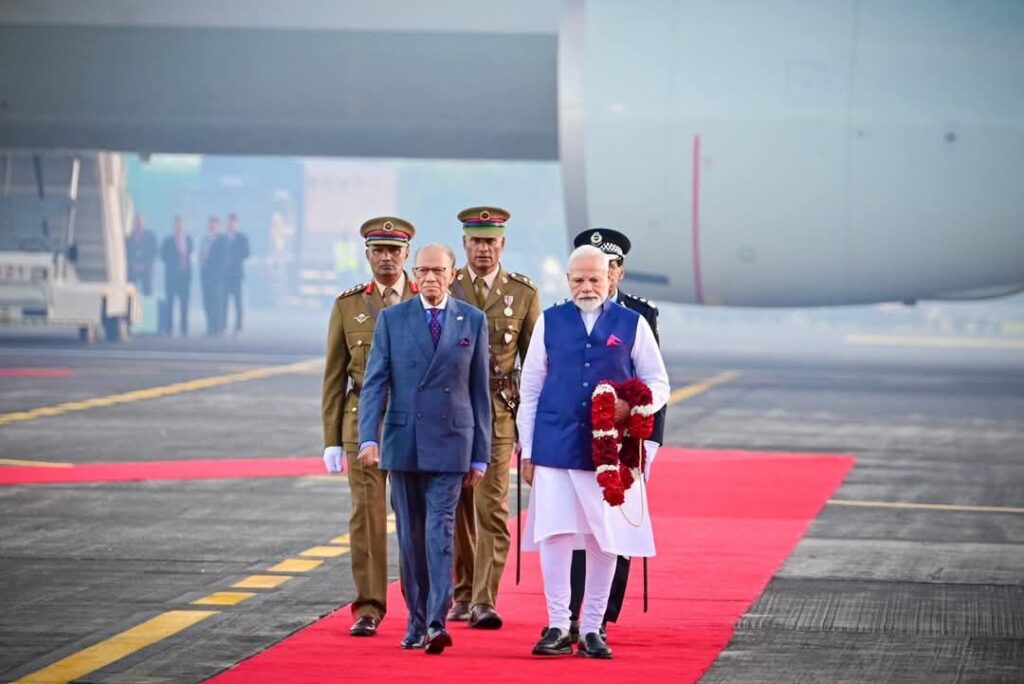
Indian Prime Minister Narendra Modi’s recent visit to Mauritius underscores the enduring and multifaceted relationship between the two nations. This partnership, deeply rooted in historical, cultural, and strategic ties, gains prominence against the backdrop of shifting global geopolitics involving key players such as the United States, Russia, China, and Europe.
Historical Foundations of India-Mauritius Relations
The bond between India and Mauritius is anchored in a shared history and cultural affinity. A significant portion of the Mauritian population traces its ancestry to Indian immigrants, leading to a rich tapestry of cultural and social connections. Over the decades, this relationship has evolved into a robust partnership encompassing economic cooperation, political collaboration, and strategic alignment.
Prime Minister Modi’s Participation in Mauritius’ 57th Independence Day
On March 12, 2025, Prime Minister Narendra Modi graced Mauritius’ 57th National Day celebrations as the Chief Guest. His presence not only highlighted the deep-rooted ties between the two nations but also marked his first visit to Mauritius since 2015. During the visit, Modi held bilateral talks with Mauritian Prime Minister Navinchandra Ramgoolam, who returned to office in 2024. The discussions focused on enhancing strategic ties, with Modi expressing support for Mauritius’ sovereignty over the Chagos Archipelago, aligning with recent developments involving the United States and Britain.
Strategic Collaborations: Agaléga Island Developments
A pivotal aspect of the India-Mauritius partnership is the development of infrastructure on Agaléga Island. In February 2024, Prime Ministers Modi and Pravind Jugnauth jointly inaugurated a new airstrip and jetty on the island. These facilities are set to enhance connectivity between Agaléga and mainland Mauritius, bolster maritime security, and stimulate socio-economic growth in the region. While officially aimed at improving logistics and economic opportunities, these developments also augment India’s strategic capabilities in the southwestern Indian Ocean, a region witnessing increased geopolitical interest.
The Chagos Archipelago: Sovereignty and Strategic Significance
The Chagos Archipelago, particularly Diego Garcia, has been a focal point in regional geopolitics. Historically administered by the UK, the islands host a significant US military base on Diego Garcia. In recent developments, the UK agreed to transfer sovereignty of the Chagos Islands to Mauritius, ensuring the continuity of the military base under UK-US control for at least 99 years. This agreement reflects a balancing act—acknowledging Mauritius’ sovereignty claims while maintaining strategic military installations critical for operations in the Indian Ocean.
Global Geopolitical Context: India’s Role and Implications for Mauritius
India’s engagement in the Indian Ocean region is influenced by broader geopolitical dynamics:
- United States and China: The strategic rivalry between the US and China has intensified, with both nations seeking to expand their influence in the Indian Ocean. India’s infrastructure developments in Mauritius, including those on Agaléga Island, align with US interests in countering China’s maritime expansion, thereby enhancing India’s role as a key security partner in the region.
- Russia and Europe: While Russia’s activities are more pronounced in Eastern Europe and Central Asia, its geopolitical maneuvers indirectly impact Indian Ocean dynamics. Europe’s focus on securing maritime trade routes further underscores the importance of stable partnerships in the region, positioning Mauritius as a strategic ally for India and its Western partners.
Mauritius’ Strategic Value and India’s Maritime Strategy
Mauritius’ geographic location makes it a linchpin in India’s maritime strategy. The development of facilities on Agaléga Island enhances India’s maritime domain awareness, enabling more effective monitoring of critical sea lanes and potentially countering illicit activities such as piracy and trafficking. While both India and Mauritius have refuted claims of establishing a full-fledged military base, the enhanced infrastructure undeniably boosts strategic operational capabilities.
Conclusion
The deep-rooted relationship between India and Mauritius is evolving to address contemporary geopolitical challenges. Through strategic collaborations and infrastructure developments, both nations are not only strengthening bilateral ties but also contributing to regional stability in the Indian Ocean. As global powers navigate complex interactions, the India-Mauritius partnership exemplifies a strategic alliance adapting to and influencing the broader geopolitical landscape.